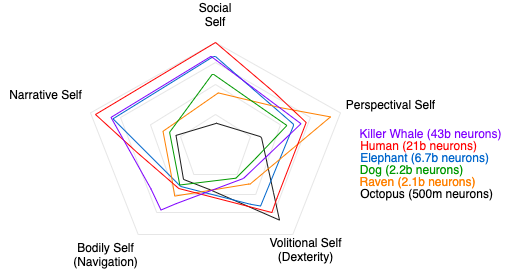It would be absurd to believe that given the brain's massively parallel construction that there is only a single thread of cognition. Consciousness is that illusion that there is only one thread.
It would be absurd to believe that this one thread is the core of cognition instead of the multiple threads that are running in the background.
What runs in the background is what is described as the unconscious. This is known as system 1 processing in dual-process theory. We are essentially intuition machines.
What we describe as consciousness is a thread that intermittently executes that is reflectively providing an explanation of a slice of the many thought threads that are running.
Consciousness feels continuous but this is just an illusion. It feels like a single thread but is also an illusion.
The key to understanding general intelligence is understanding the massively parallel unconscious brain. It is not the understanding of the single thread illusion that we call consciousness.
Understanding the unconscious intuitive brain leads to an understanding of the conscious reflective brain.
Those who practice meditation are more intimately aware of the single-threaded illusion of consciousness. It is actually very difficult to maintain a single train of thought. One takes years of practice to achieve this. It is not a natural state.
There are different kinds of meditation. They all have in common the intentional control of the conscious mind. But anyone who has experienced meditation knows that this mind is constantly being interrupted. It is as if it were in fact not continuous at all.
I'm not an expert in meditation but I suspect that there are certain kinds that are more beneficial than other kinds. I've always been expressed with the clarity of thought of @harari_yuval and @vervaeke_john and suspect it is due to their meditation style.
The mechanism of consciousness employs the mechanism of attention. The mechanism of attention is enabled via the basal ganglia informing the thalamus to inhibit processing in the cortex. Consciousness is an action and not a background process.
Attention is not like a spotlight that focuses our cognitive resources on a narrow concern. Rather it is a regulation mechanism that deprioritizes many concurrent threads.
The System 2 reflective process is slow because this deprioritization implies that it cannot fully exploit the massive parallelism of the brain.
Intuition can only be leveraged through practice. To be really good at something requires 10,000 hours of participatory experience. Humans do not master a skill by reading an instruction manual.
To leverage the massive processing in the brain, the performance of skill must become unconscious. In other words, skills must become 'second nature' and thus run 'in the background'.
But what differentiates human consciousness with animal consciousness if it is all just a mechanism of reflexive cognition and attention? Uexkull has argued that an animal's cognition is forged by its umwelt.
The umwelt are the capabilities of perception and action that is available to a species. Humans are gifted with a high resolution fovea, high dexterity hands and vocal cords. No other animal has this triple combination. (is that called a hat trick?)
Consciousness as action is a consequence of umwelt. Human consciousness in unique because the human umwelt is unique and the human umwelt is uniquely rich.
In my model of the brain, I find it useful to divide functionality into five regions called self. That is, the bodily, volitional, perspectival, narrative and social selves. Dues to the uniqueness of a species' umwelt, there are difference in consciousness:
Humans all have the same umwelt. So we share the same 'common sense'. However, our consciousness are different because our brains are unique in its inclination towards learning. Our brains are the product of our interaction with the environment.
Julian Jaynes argued that prior to widespread literacy, most humans consciousness was very different from present-day consciousness. The development of civilizations prior to literacy led to what he called the Bicameral mind. Minds that heard voices of instruction in their head.
It as there was another mind in people's heads! That is because there are actually several minds. But due to our practice of reading we've acquired the habit of introspection of our thoughts.
Literacy is different from the vocalization of language. Language also molds how we think. Although language allows humans to think more abstractly, it is a double-edges sword. Language is effective because it reduces the need for thinking.
When we use symbols, we substitute understanding with compressed tokens of convention. Language is what binds civilizations together because it how norms are established without the need for understanding.
Language divorced from understanding is how to create a cult.
The conventional argument language is what separates humans from animals and therefore it is language that underlies human consciousness. This I conjecture to be wrong. A machine can learn language but it doesn't need to be conscious.
Just as computers have automated artificial reasoning, they can automate language generation. Present-day computers of course are not conscious. Because consciousness is not a feature, it's an action that is performed as a consequence of a general intelligence.
What is a general intelligence? That's a longer story that I describe in my book: http://gum.co/empathy
@threadreaderapp unroll

 Read on Twitter
Read on Twitter


